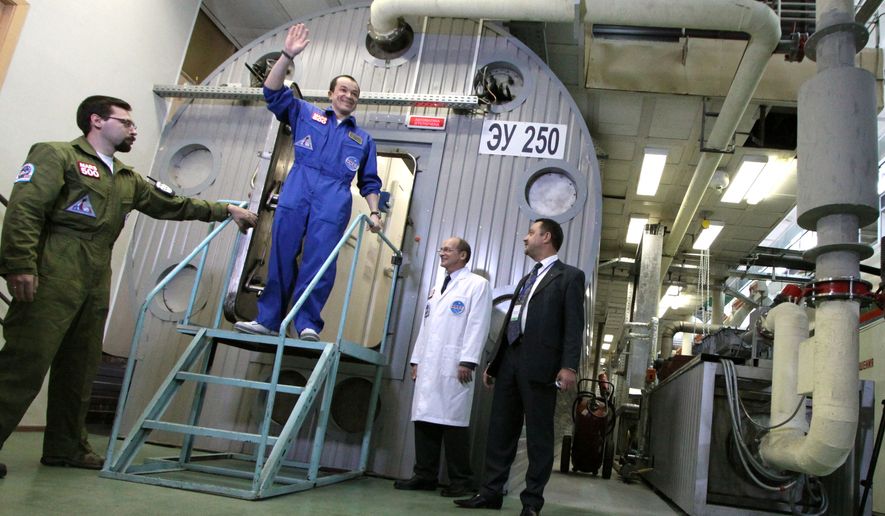The U.S. might soon see two of its Cold War adversaries move closer to an agreement on joint missions to colonize Mars and the moon. Russia and China discussed expanding their cooperation to explore outer space, Russian Deputy Prime Minister Dmitry Rogozin told reporters Wednesday.
The lead officials for Chinese-Russian relations announced plans for joint space exploration last April, suggesting they might establish a Sino-Russian base on the moon. One year later, they’ve added Mars to the discussion.
“We’re developing an understanding for the rocket and space industry for possible interaction in such profound and technologically complex projects as the future exploration of the moon, Mars and piloted cosmonautics,” Mr. Rogozin said.
The Russian vice-premier made the announcement during a talk with the heads of Russian regions and Chinese provinces and the managers of companies from both nations in Yekaterinburg, Russia.
Mr. Rogozin said he and Chinese Vice-Premier Wang Yang discussed “cooperation in the nuclear sphere, and cooperation in the issues of interaction between our space agencies where there are such large projects.”
Last month, during Russian President Vladimir Putin’s visit to Beijing, the two countries signed a pact setting out legal framework for protecting their rights to sensitive space technologies in joint projects like launch vehicles and rocket engines.
This space-centered relationship first took off in 2014 when U.S.-led economic, financial, industrial and personnel sanctions pushed Moscow toward forming an alliance with Beijing. The Soviet Union helped pioneer space travel while China’s younger space program has sent 10 “taikonauts” into orbit in the past few years.
China is set to launch its second space station into orbit in September, though experts are worried about China’s first satellite: its decaying orbit suggests it may crash back down to earth in the next couple of years.
Meanwhile, Russia is developing a stealth bomber that can flying at hypersonic speeds, dropping nuclear bombs from space. According to the Kremlin, the the bomber is expected to take flight in 2020.
• Jessie Fox can be reached at jfox@washingtontimes.com.




Please read our comment policy before commenting.